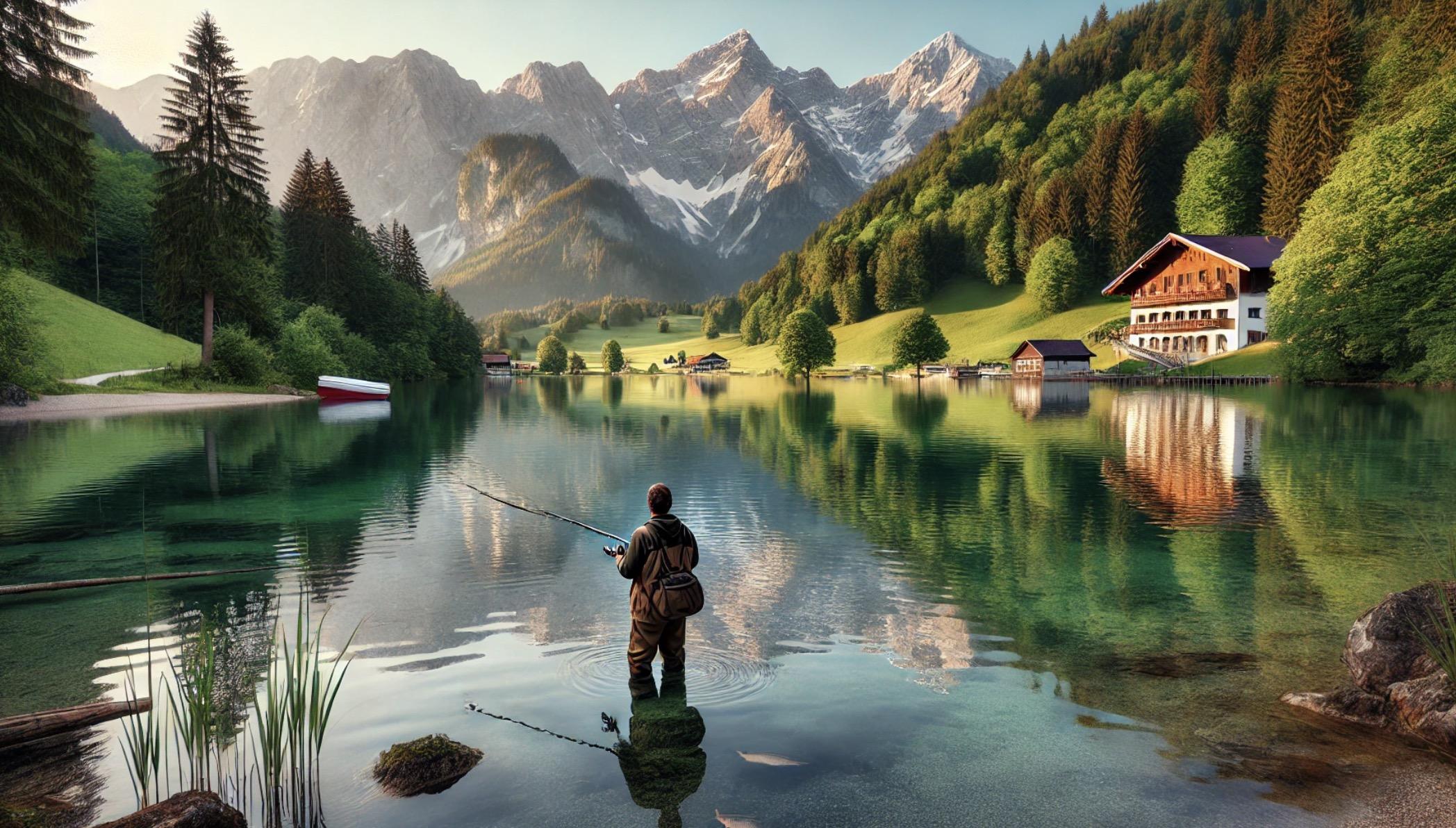Germany is more than its fairytale castles and bustling beer gardens; it’s a paradise for anglers seeking both adventure and tranquility. From serene alpine lakes to winding rivers teeming with fish, the country offers an incredible variety of fishing opportunities. However, planning a fishing trip to Germany isn’t just about packing your tackle and choosing a spot—it’s also about understanding the local regulations to make your adventure enjoyable and compliant.
Choosing Your Destination: Lakes, Rivers, and Coastlines
Germany’s diverse geography means you’ll find fishing opportunities for every preference. The north boasts the Baltic and North Seas, ideal for saltwater fishing. Try your hand at catching cod, herring, or mackerel from a fishing charter or coastal pier. For those drawn to freshwater angling, head south to Bavaria, where pristine alpine lakes like Tegernsee or Königssee await. The meandering rivers such as the Rhine, Elbe, and Danube offer another exciting dimension, where you can fish for pike, zander, carp, and trout.
Each region has its unique appeal:
- Northern Germany: Saltwater fishing near Hamburg or the coastal islands like Rügen.
- Central Germany: The River Main and Edersee Lake, great for family-friendly trips.
- Southern Germany: Bavarian lakes framed by the Alps for breathtaking scenery.
Understanding Fishing Licenses and Regulations
Fishing in Germany requires preparation, especially when it comes to permits. Unlike some countries, Germany has strict regulations to protect its aquatic ecosystems. Here’s what you need to know:
- Fishing License (Angelschein):
Most regions require a valid fishing license. If you’re a tourist without a German fishing license, you may apply for a temporary permit in certain areas. These are often easier to obtain but may come with restrictions. - Fishing Permits (Erlaubnisschein):
Beyond the general license, you’ll also need a permit specific to the body of water you plan to fish in. This ensures you’re respecting local conservation efforts and helps maintain sustainable fishing practices. - Closed Seasons and Size Restrictions:
Germany takes fish conservation seriously. Certain fish species have closed seasons, meaning it’s illegal to catch them during specific times to allow for reproduction. Here are a few examples:- Pike (Hecht): Typically protected in spring (March–April) depending on the region.Zander (Walleye): Often closed from April to May.Trout (Forelle): Commonly restricted from October to February.
Packing Tips for a German Fishing Adventure
Preparation is key for a successful fishing trip in Germany. Here are some essentials to include:
- Lightweight gear for river and lake fishing; heavier gear for saltwater fishing.
- Lures and bait: Artificial lures work well for pike and zander, while live bait is often preferred for carp and catfish.
- Weather-appropriate clothing: Germany’s weather can be unpredictable, especially in spring and autumn.
- Maps or GPS: Some fishing spots are off the beaten path, so having navigation tools is a must.
Top Fishing Spots in Germany
Here’s a closer look at some standout destinations:
- Lake Chiemsee (Bavaria): Known as the “Bavarian Sea,” this lake offers a mix of pike, perch, and eel. Its scenic surroundings make it a favorite for anglers and nature lovers alike.
- River Havel (Brandenburg): Near Berlin, this tranquil river is perfect for catching zander and bream.
- Lake Müritz (Mecklenburg-Vorpommern): Germany’s largest lake is teeming with pike, perch, and whitefish, making it a hotspot for serious anglers.
Fishing Etiquette and Conservation
While fishing in Germany, respect for nature and fellow anglers is paramount. Avoid leaving trash behind, and follow the “catch and release” rule where it applies. Many German anglers practice conservation-minded fishing, taking only what they need and releasing smaller or protected fish.
After Fishing: Exploring Local Delights
No fishing trip is complete without indulging in local cuisine. Try fresh fish dishes like Forelle Müllerin (pan-fried trout) or Matjeshering (pickled herring). Pair your meal with a locally brewed beer or a glass of crisp German Riesling.
And if you’re fishing near a quaint village or bustling city, take time to explore. From historic castles to vibrant markets, Germany has plenty to offer beyond the water.
Plan Your Fishing Adventure Today
Fishing in Germany is an experience like no other. Its well-managed waters, stunning landscapes, and rich angling culture make it a top destination for fishing enthusiasts. Just be sure to respect the rules, plan ahead, and immerse yourself in the beauty of the country. Tight lines and happy fishing!
For more tips and detailed guides on fishing gear, regulations, and the best spots in Germany, visit Professional Fishing.

